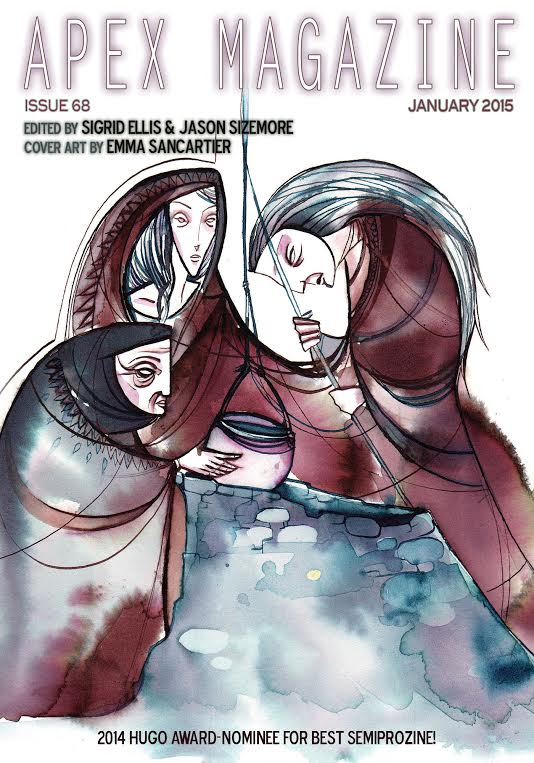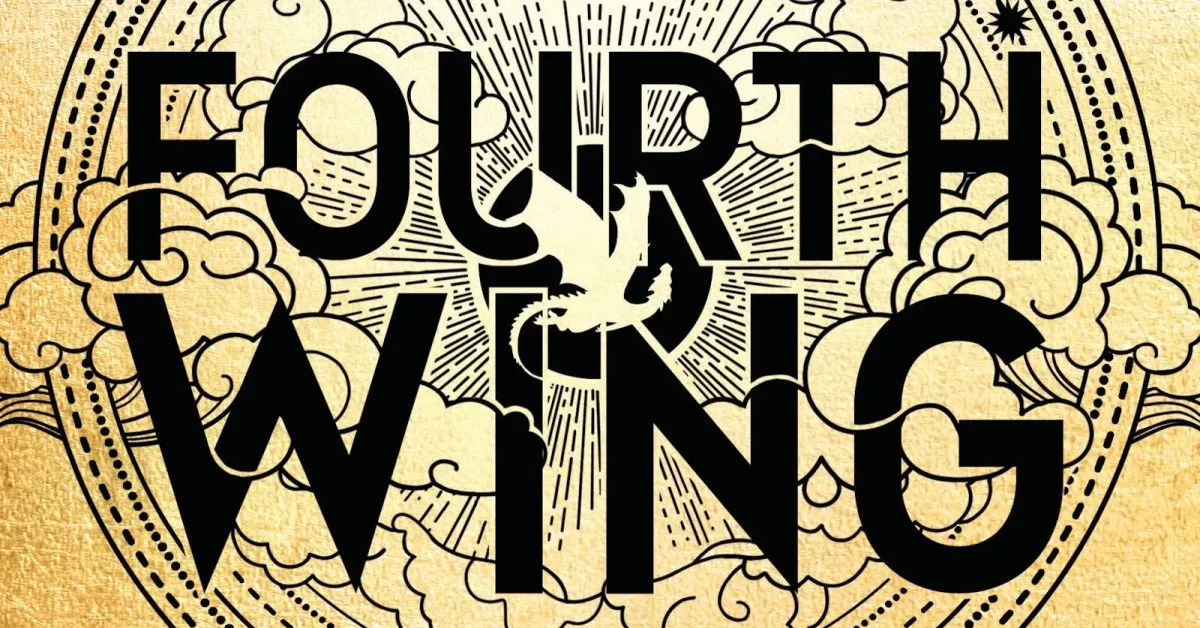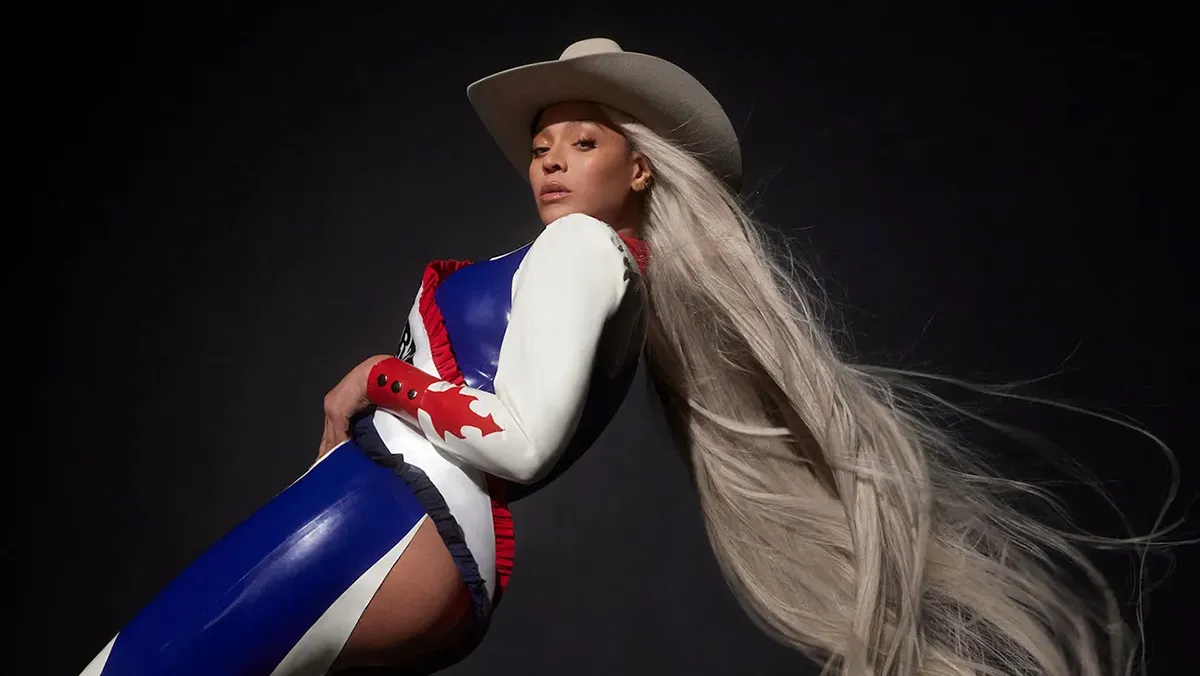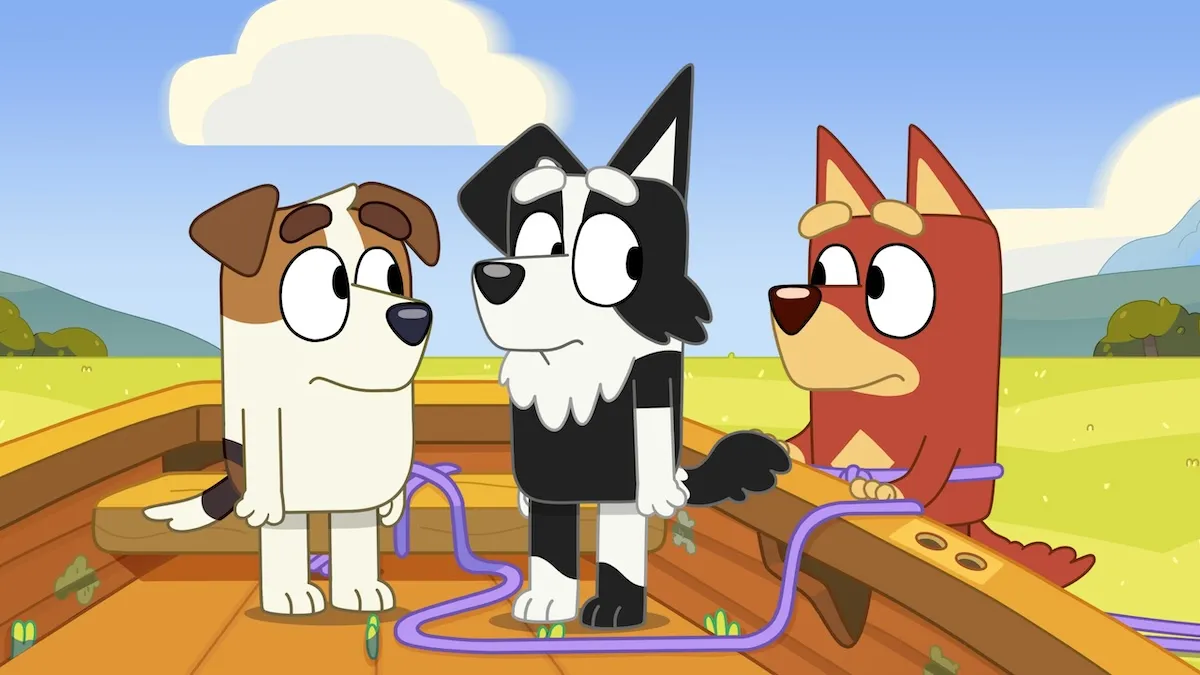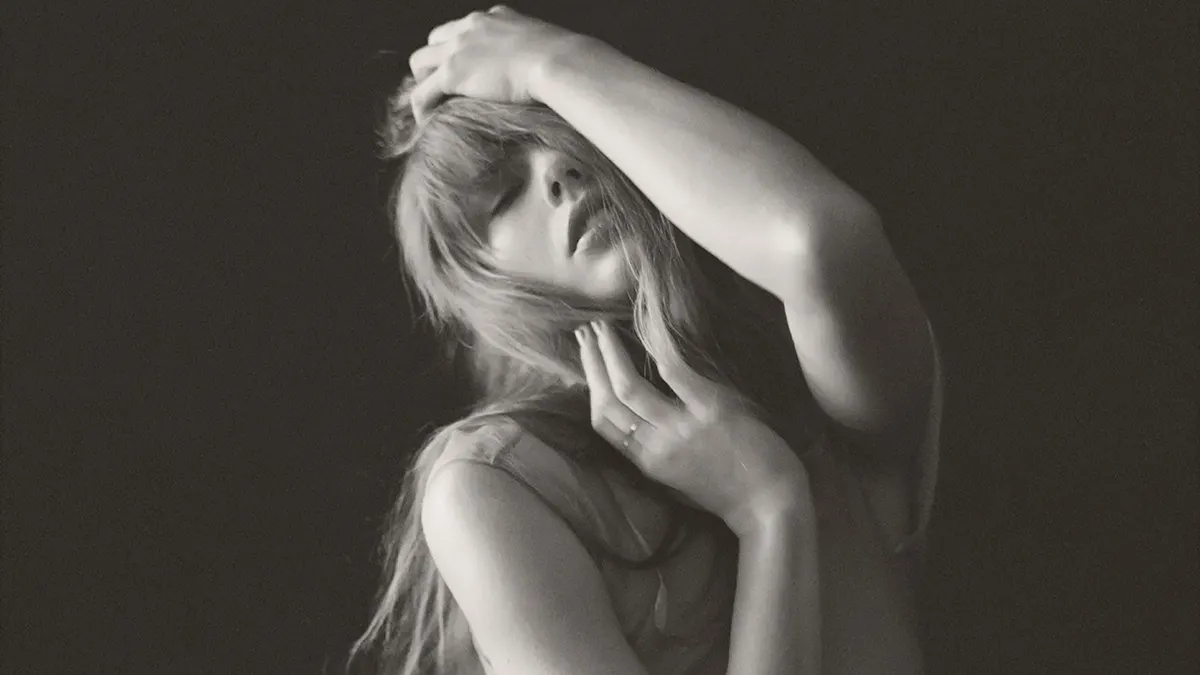The Mary Sue is pleased to present strange, beautiful new fiction from Apex Magazine each month. This month’s story, from Apex Magazine’s current issue, is “Pocosin” by Ursula Vernon. Take a look…
[Author’s Note: Pocosins are a type of raised peat wetland found almost exclusively in the Carolinas. The name derives from an Eastern Algonquian word meaning “swamp on a hill.” They are a rare and unique ecosystem, today widely threatened by development.]
This is the place of the carnivores, the pool ringed with sundews and the fat funnels of the pitcher plants.
This is the place where the ground never dries out and the loblolly pines grow stunted, where the soil is poor and the plants turn to other means of feeding themselves.
This is the place where the hairstreak butterflies flow sleekly through the air and you can hear insect feet drumming inside the bowl of the pitcher plants.
This is the place where the old god came to die.
He came in the shape of the least of all creatures, a possum. Sometimes he was a man with a long rat’s tail, and sometimes he was a possum with too–human hands. On two legs and four, staggering, with his hands full of mud, he came limping through the marsh and crawled up to the witchwoman’s porch.
“Go back,” she said, not looking up. She had a rocking chair on the porch and the runners creaked as she rocked. There was a second chair, but she did not offer it to him. “Go back where you came from.”
The old god laid his head on the lowest step. When he breathed, it hissed through his long possum teeth and sounded like he was dying.
“I’m done with that sort of thing,” she said, still not looking up. She was tying flies, a pleasantly tricky bit of work, binding thread and chicken feathers to the wickedness of the hook. “You go find some other woman with witchblood in her.”
The old god shuddered and then he was mostly a man. He crawled up two steps and sagged onto the porch.
The woman sighed and set her work aside. “Don’t try to tell me you’re dying,” she said grimly. “I won’t believe it. Not from a possum.”
Her name was Maggie Grey. She was not so very old, perhaps, but she had the kind of spirit that is born old and grows cynical. She looked down on the scruffy rat–tailed god with irritation and a growing sense of duty.
His throat rasped as he swallowed. He reached out a hand with long yellow nails and pawed at the boards on the porch.
“Shit,” Maggie said finally, and went inside to get some water.
§
She poured it down his throat and most of it went down. He came a little bit more alive and looked at her with huge, dark eyes. His face was dirty pale, his hair iron gray.
She knew perfectly well what he was. Witchblood isn’t the same as godblood, but they know each other when they meet in the street. The question was why a god had decided to die on her porch, and that was a lousy sort of question.
“You ain’t been shot,” she said. “There’s not a hunter alive that could shoot the likes of you. What’s got you dragging your sorry ass up on my porch, old god?”
The old god heaved himself farther up on the porch. He smelled rank. His fur was matted with urine when he was a possum and his pants were stained and crusted when he was a man.
His left leg was swollen at the knee, a fat bent sausage, and the foot beneath it was black. There were puncture wounds in his skin. Maggie grunted.
“Cottonmouth, was it?”
The old god nodded.
Maggie sat back down in the rocking chair and looked out over the sundew pool.
There was a dense mat of shrubs all around the house, fetterbush and sheep laurel bound up together with greenbrier. She kept the path open with an axe, when she bothered to keep it open at all. There was no one to see her and the dying man who wasn’t quite a man.
Mosquitos whined in the throats of the pitcher plants and circled the possum god’s head. Maggie could feel her shoulders starting to tense up. It was always her shoulders. On a bad day, they’d get so knotted that pain would shoot down her forearms in bright white lines.
“Would’ve preferred a deer,” she said. “Or a bear, maybe. Got some dignity that way.” Then she laughed. “Should’ve figured I’d get a possum. It’d be a nasty, stinking sort of god that wanted anything to do with me.”
She picked up a pair of scissors from where she’d been tying flies. “Hold still. No, I ain’t gonna cut you. I ain’t so far gone to try and suck the poison out of a god.”
It had likely been another god that poisoned him, she thought—Old Lady Cottonmouth, with her gums as white as wedding veils. She saw them sometimes, big, heavy–bodied snakes, gliding easy through the water. Hadn’t ever seen the Old Lady, but she was out there, and it would be just like a possum to freeze up when those white gums came at him, sprouting up fangs.
Even a witch might hesitate at that.
She waited until he was a man, more or less, and cut his pant leg open with the scissors. The flesh underneath was angry red, scored with purple. He gasped in relief as the tight cloth fell away from the swollen flesh.
“Don’t thank me,” she said grimly. “Probably took a few hours off your life with that. But they wouldn’t be anything worth hanging on for.”
She brought him more water. The first frogs began to screek and squeal in the water.
“You sure you want this?” she asked. “I can put a knife across your throat, make it easy.”
He shook his head.
“You know who’s coming for you?”
He nodded. Then he was a possum again and he gaped his mouth open and hissed in pain.
She hesitated, still holding the scissors. “Ain’t sure I want to deal with ’em myself,” she muttered. “I’m done with all that. I came out here to get away, you hear me?”
The possum closed his eyes, and whispered the only word he’d ever speak.
“…sorry…”
Maggie thrust the scissors into her pocket and scowled.
“All right,” she said. “Let’s get you under the porch. You come to me and I’ll stand them off for you, right enough, but you better not be in plain sight.”
She had to carry him down the steps. His bad leg would take no weight and he fell against her, smelling rank. There were long stains on her clothes before they were done.
Under the porch, it was cool. The whole house was raised up, to save it from the spring floods, when the sundew pool reached out hungry arms. There was space enough, in the shadow under the stairs, for a dying god smaller than a man.
She didn’t need to tell him to stay quiet.
She went into the house and poured herself a drink. The alcohol was sharp and raw on her throat. She went down the steps again, to a low green stand of mountain mint, and yanked up a half dozen stems.
They didn’t gentle the alcohol, but at least it gave her something else to taste. The frogs got louder and the shadows under the sheep laurel got thick. Maggie sat back in her rocking chair with her shoulders knotting up under her shirt and went back to tying flies.
Someone cleared his throat.
She glanced up, and there was a man in preacher’s clothes, with the white collar and clean black pants. The crease in them was pressed sharp enough to draw blood.
“Huh,” she said. “Figured the other one’d beat you here.”
His gave her a pained, fatherly smile.
She nodded to the other chair. “Have a seat. I’ve got bad whiskey, but if you cut it with mint and sugar, it ain’t bad.”
“No, thank you,” said the preacher. He sat down on the edge of the chair. His skin was peat colored and there was no mud on his shoes. “You know why I’ve come, Margaret.”
“Maggie,” she said. “My mother’s the only one who calls me Margaret, and she’s dead, as you very well know.”
The preacher tilted his head in acknowledgment.
He was waiting for her to say something, but it’s the nature of witches to outwait God if they can, and the nature of God to forgive poor sinners their pride. Eventually he said, “There’s a poor lost soul under your porch, Maggie Grey.”
“He didn’t seem so lost,” she said. “He walked here under his own power.”
“All souls are lost without me,” said the preacher.
Maggie rolled her eyes.
A whip–poor–will called, placing the notes end to end, whip–er–will! whip–er–will!
It was probably Maggie’s imagination that she could hear the panting of the god under the porch, in time to the nightjar’s calls.
The preacher sat, in perfect patience, with his wrists on his knees. The mosquitos that formed skittering sheets over the pond did not approach him.
“What’s there for a possum in heaven, anyway?” asked Maggie. “You gonna fill up the corners with compost bins and rotten fruit?”
The preacher laughed. He had a gorgeous, church–organ laugh and Maggie’s heart clenched like a fist in her chest at the sound. She told her heart to behave. Witchblood ought to know better than to hold out hope of heaven.
“I could,” said the preacher. “Would you give him to me if I did?”
Maggie shook her head.
His voice dropped, a father explaining the world to a child. “What good does it do him, to be trapped in this world? What good does it do anyone?”
“He seems to like it.”
“He is a prisoner of this place. Give him to me and I will set him free to glory.”
“He’s a possum,” said Maggie tartly. “He ain’t got much use for glory.”
The preacher exhaled. It was most notable because, until then, he hadn’t been breathing. “You cannot doubt my word, my child.”
“I ain’t doubting nothing,” said Maggie. “It’d be just exactly as you said, I bet. But he came to me because that’s not what he wanted, and I ain’t taking that away from him.”
The preacher sighed. It was a more–in–sorrow–than–in–anger sigh, and Maggie narrowed her eyes. Her heart went back to acting the way a witch’s heart ought to act, which was generally to ache at every damn thing and carry on anyway. Her shoulders felt like she’d been hauling stones.
“I could change your mind,” he offered.
“Ain’t your way.”
He sighed again.
“Should’ve sent one of the saints,” said Maggie, taking pity on the Lord, or whatever little piece of Him was sitting on her porch. “Somebody who was alive once, anyway, and remembers what it was like.”
He bowed his head. “I will forgive you,” he said.
“I know you will,” said Maggie kindly. “Now get gone before the other one shows up.”
Her voice sounded as if she shooed the Lord off her porch every day, and when she looked up again, he was gone.
§
It got dark. The stars came out, one by one, and were reflected in the sundew pool. Fireflies jittered, but only a few. Fireflies like grass and open woods, and the dense mat of the swamp did not please them. Maggie lit a lamp to tie flies by.
The Devil came up through a stand of yellowroot, stepping up out of the ground like a man climbing a staircase. Maggie was pleased to see that he had split hooves. She would have been terribly disappointed if he’d been wearing shoes.
He kicked aside the sticks of yellowroot, tearing shreds off them, showing ochre–colored pith underneath. Maggie raised an eyebrow at this small destruction, but yellowroot is hard to kill.
“Maggie Grey,” said the fellow they called the Old Gentleman.
She nodded to him, and he took it as invitation, dancing up the steps on clacking hooves. Maggie smiled a little as he came up the steps, for the Devil always was a good dancer.
He sat down in the same chair that the preacher had used, and scowled abruptly. “See I got here late.”
“Looks that way,” said Maggie Grey.
He dug his shoulderblades into the back of the chair, first one, then the other, rolling a little, like a cat marking territory in something foul. Maggie stifled a sigh. It had been a good rocking chair, but it probably wasn’t wise to keep a chair around that the Devil had claimed.
“You’ve got something I want, Maggie Grey,” he said.
“If it’s my soul, you’ll be waiting awhile,” said Maggie, holding up a bit of feather. She looped three black threads around it, splitting the feather so it looked like wings. The hook gleamed between her fingers.
“Oh no,” said the Devil, “I know better than to mess with a witch’s soul, Maggie Grey. One of my devils showed up to tempt your great–grandmother, and she bit him in half and threw his horns down the well.”
Maggie sniffed. “Well’s gone dry,” she said, trying not to look pleased. She knew better than to respond to demonic flattery. “It’s the ground hereabouts. Sand and moss and swamps on top of hills. Had to dig another one, and lord knows how long it’ll last.”
“Didn’t come here to discuss well–digging, Maggie Grey.”
“I suppose not.” She bit off a thread.
“There’s an old god dying under your porch, Maggie Grey. The fellow upstairs wants him, and I aim to take him instead.”
She sighed. A firefly wandered into a pitcher plant and stayed, pulsing green through the thin flesh. “What do you lot want with a scrawny old possum god, anyway?”
The Devil propped his chin on his hand. He was handsome, of course. It would have offended his notion of his own craftsmanship to be anything less. “Me? Not much. The fellow upstairs wants him because he’s a stray bit from back before he and I were feuding. An old loose end, if you follow me.“
Maggie snorted. “Loose end? The possum gods and the deer and Old Lady Cottonmouth were here before anybody thought to worship you. Either of you.”
The Devil smiled. “Can’t imagine there’s many worshippers left for an old possum god, either. ’Cept the possums, and they don’t go to church much.”
Maggie bent her head over the wisp of thread and metal. “He doesn’t feel like leaving.”
Her guest sat up a little straighter. “I am not sure,” he said, silky–voiced, “that he is strong enough to stop me.”
Maggie picked up the pliers and bent the hook, just a little, working the feathers onto it. “He dies all the time,” she said calmly. “You never picked him up the other times.”
“Can only die so many times, Maggie Grey. Starts to take it out of you. Starts to make you tired, right down to the center of your bones. You know what that’s like, don’t you?”
She did not respond, because the worst thing you can do is let the Devil know when he’s struck home.
“He’s weak now and dying slow. Easy pickings.”
“Seems like I might object,” she said quietly.
The Devil stood up. He was very tall and he threw a shadow clear over the pool when he stood. The sundews folded their sticky leaves in where the shadow touched them. Under the porch steps, the dying god moaned.
He placed a hand on the back of her chair and leaned over her.
“We can make this easy, Maggie Grey,” he said. “Or we can make it very hard.”
She nodded slowly, gazing over the sundew pool.
“Come on—” the Devil began, and Maggie moved like Old Lady Cottonmouth and slammed the fish–hook over her shoulder and into the hand on the back of her chair.
The Devil let out a yelp like a kicked dog and staggered backwards.
“You come to my house,” snapped Maggie, thrusting the pliers at him, “and you have the nerve to threaten me? A witch in her own home? I’ll shoe your hooves in holy iron and throw you down the well, you hear me?”
“Holy iron won’t be kind to witchblood,” he gasped, doubled over.
“It’ll be a lot less kind to you,” she growled.
The Devil looked at his hand, with the fish–hook buried in the meat of his palm, and gave a short, breathless laugh. “Oh, Maggie Grey,” he said, straightening up. “You aren’t the woman your great–grandmother was, but you’re not far off.”
“Get gone,” said Maggie. “Get gone and don’t come back unless I call.”
“You will eventually,” he said.
“Maybe so. But not today.”
He gave her a little salute, with the hook still stuck in his hand, and limped off the porch. The yellowroot rustled as he sank into the dirt again.
His blood left black spots on the earth. She picked up the lantern and went to peer at the possum god.
He was still alive, though almost all possum now. His whiskers lay limp and stained with yellow. There was white all around his eyes and a black crust of blood over his hind leg.
“Not much longer,” she said. “Only one more to go, and then it’s over. And we’ll both be glad.”
He nodded, closing his eyes.
On the way back onto the porch, she kicked at a black bloodstain, which had sprouted a little green rosette of leaves. A white flower coiled out of the leaves and turned its face to the moon.
“Bindweed,” she muttered. “Lovely. One more damn chore tomorrow.”
She stomped back onto the porch and poured another finger of whiskey.
§
It was almost midnight when the wind slowed, and the singing frogs fell silent, one by one.
Maggie looked over, and Death was sitting in the rocking chair.
“Grandmother,” she said. “I figured you’d come.”
“Always,” said Death.
“If you’d come a little sooner, would’ve saved me some trouble.”
Death laughed. She was a short, round woman with hair as gray as Maggie’s own. “Seems to me you were equal to it.”
Maggie grunted. “Whiskey?”
“Thank you.”
They sat together on the porch, drinking. Death’s rocker squeaked in time to the breathing of the dying god.
“I hate this,” said Maggie, to no one in particular. “I’m tired, you hear me? I’m tired of all these fights. I’m tired of taking care of things, over and over, and having to do it again the next day.” She glared over the top of her whiskey. “And don’t tell me that it does make a difference, because I know that, too. Ain’t I a witch?”
Death smiled. “Wouldn’t dream of it,” she said.
Maggie snorted.
After a minute, she said, “I’m so damn tired of stupid.”
Death laughed out loud, a clear sound that rang over the water. “Aren’t we all?” she said. “Gods and devils, aren’t we all?”
The frogs had stopped. So had the crickets. One whip–poor–will sang uncertainly, off on the other side of the pond. It was quiet and peaceful and it would have been a lovely night, if the smell of the dying possum hadn’t come creeping up from under the porch.
Death gazed into her mug, where the wilting mint was losing the fight against the whiskey. “Can’t fix stupid,” she said. “But other things, maybe. You feeling like dying?”
Maggie sighed. It wasn’t a temptation, even with her shoulders sending bright sparks of pain toward her fingers and making the pliers hard to hold steady. “Feeling like resting,” she said. “For a couple of months, at least. That’s all I want. Just a little bit of time to sit here and tie flies and drink whiskey and let somebody else fight the hard fights.”
Death nodded. “So take it,” she said. “Nobody’s gonna give it to you.”
Maggie scowled. “I was,” she said bitterly. “’Til a possum god showed up to die.”
Death laughed. “It’s why he came, you know,” she said. Her eyes twinkled, just like Maggie’s grandmother’s had when she wore the body that Death was wearing now. “He wanted to be left alone to die, so he found a witch that’d understand.”
Maggie raked her fingers through her hair. “Son of a bitch,” she said to no one in particular.
Death finished her drink and set it aside. “Shall we do what’s needful?”
Maggie slugged down the rest of the mug and gasped as the whiskey burned down her throat. “Needful,” she said thickly. “That’s being a witch for you.”
“No,” said Death, “that’s being alive. Being a witch just means the things that need doing are bigger.”
They went down the stairs. The boards creaked under Maggie’s feet, but not under Death’s, even though Death had heavy boots on.
Maggie crouched down and said, “She’s here for you, hon.”
She would have sworn that the possum had no strength left in him, but he crawled out from under the porch, hand over hand. His hind legs dragged and his tail looked like a dead worm.
There was nothing noble about him. He stank and black fluid leaked from his ears and the corners of his eyes. Even now, Maggie could hardly believe that God and the Devil would both show up to bargain for such a creature’s soul.
Death knelt down, heedless of the smell and the damp, and held out her arms.
The possum god crawled the last little way and fell into her embrace.
“There you are,” said Death, laying her cheek on the spikey–furred forehead. “There you are. I’ve got you.”
The god closed his eyes. His breath went out on a long, long sigh, and he did not draw another one.
Maggie walked away, to the edge of the sundew pool, and waited.
A frog started up, then another one. The water rippled as their throat sacs swelled. Something splashed out in the dark.
“It’s done,” called Death, and Maggie turned back.
The god looks smaller now. Death had gathered him up and he almost fit in her lap, like a small child or a large dog.
“Don’t suppose he’s faking it?” asked Maggie hopefully. “They’re famous for it, after all.”
Death shook her head. “Even possum gods got to die sometime. Help me get him into the pond.”
Maggie took him under the arms and Death took the feet. His tail dragged on the ground as they hauled him. Death went into the water first, sure–footed, and Maggie followed, feeling water come in over the tops of her shoes.
“If I’d been thinking, I would’ve worn waders,” she said.
Death laughed Maggie’s grandmother’s laugh.
The bottom of the sundew pool was made of mud and sphagnum moss, and it wasn’t always sure if it wanted to be solid or not. Every step she took required a pause while the mud settled and sometimes her heels sank in deep. She started to worry that she was going to lose her shoes in the pool, and god, wouldn’t that be a bitch on top of everything else?
At least the god floated. Her shoulders weren’t up to much more than that.
In the middle of the pool, Death stopped. She let go of the possum’s feet and came around to Maggie’s side. “This ought to do it,” she said.
“If we leave the body in here, it’ll stink up the pool something fierce,” said Maggie. “There’s things that come and drink here.”
“Won’t be a problem,” Death promised. She paused. “Thought you were tired of taking care of things?”
“I am,” snapped Maggie. “Tired isn’t the same as can’t. Though if this keeps up…”
She trailed off because she truly did not know what lay at the end of being tired and it was starting to scare her a little.
Death took the possum’s head between her hands. Maggie put a hand in the center of his chest.
They pushed him under the water and held him for the space of a dozen heartbeats, then brought him to the surface.
“Again,” said Death.
They dunked him again.
“Three times the charm,” said Death, and they pushed him under the final time.
The body seemed to melt away under Maggie’s hands. One moment it was a solid, hairy weight, then it wasn’t. For a moment she thought it was sinking and her heart sank with it, because fishing a dead god out of the pond was going to be a bitch of a way to spend an hour.
But he did not sink. Instead he simply unmade himself, skin from flesh and flesh from bone, unraveling like one of her flies coming untied, and there was nothing left but a shadow on the surface of the water.
Maggie let out a breath and scrubbed her hands together. They felt oily.
She was freezing and her boots were full of water and something slimy wiggled past her shin. She sighed. It seemed, as it had for a long time, that witchcraft—or whatever this was—was all mud and death and need.
She was so damn tired.
She thought perhaps she’d cry, and then she thought that wouldn’t much help, so she didn’t.
Death reached out and took her granddaughter’s hand.
“Look,” said Death quietly.
Around the pond, the fat trumpets of the pitcher plants began to glow from inside, as if they had swallowed a thousand fireflies. The light cast green shadows across the surface of the water and turned the sundews into strings of cut glass beads. It cut itself along the leaves of the staggerbush and threaded between the fly–traps’ teeth.
Whatever was left of the possum god glowed like foxfire.
Hand in hand, they came ashore by pitcher plant light.
Death stood at the foot of the steps. Maggie went up them, holding the railing, moving slow.
There were black stains on the steps where the god had oozed. She was going to have to scrub them down, pour bleach on them, maybe even strip the wood. The bindweed, that nasty little plant they called “Devil’s Guts” was already several feet long and headed toward the mint patch. The stink of dying possum was coming up from under the steps and that was going to need to be scraped down with a shovel and then powdered with lime.
At least she could wait until tomorrow to take an axe to the Devil’s rocking chair, though it might be sensible to drag it off the porch first.
The notion of all the work to be done made her head throb and her shoulders climb toward her ears.
“Go to bed, granddaughter,” said Death kindly. “Take your rest. The world can go on without you for a little while.”
“Work to be done,” Maggie muttered. She held onto the railing to stop from swaying.
“Yes,” said Death, “but not by you. Not tonight. I will make you this little bargain, granddaughter, in recognition of a kindness. I will give you a little time. Go to sleep. Things left undone will be no worse for it.”
Death makes bargains rarely, and unlike the Devil, hers are not negotiable. Maggie nodded and went inside.
She fell straight down on the bed and was asleep without taking off her boots. She did not say goodbye to the being that wore her grandmother’s face, but in the morning, a quilt had been pulled up over her shoulder.
§
The next evening, as the sun set, Maggie sat in her rocking chair and tied flies. Her shoulders were slowly, slowly easing. The pliers only shook a little in her hand.
She had dumped bleach over the steps, and the smell from under the porch had gone of its own accord. The bindweed… well, the black husks had definitely been bindweed, but something had trod upon it and turned it into ash. It was a kindness she hadn’t expected.
Her whiskey bottle was also full, with something rather better than moonshine, although she suspected that a certain cloven–hooved gentleman might have been responsible for that.
The space on the porch where the other rocking chair had been ached like a sore tooth and caught her eye whenever she glanced over. She sighed. Still, the wood would keep the fire going for a couple of days, when winter came.
The throats of the pitcher plants still glowed, just a little. Easy enough to blame on tired eyes. Maggie wrapped thread around the puff of feather and the shining metal hook, and watched the glow from the corner of her eyes.
A young possum trundled out of the thicket, and Maggie looked up.
“Don’t start,” she said warningly. “I’ll get the broom.”
The possum sat down on the edge of the pond. It was an awkward, ungainly little creature, with big dark eyes and wicked kinked whiskers. It was halfway hideous and halfway sweet, which gave it something in common with witches.
Slowly, slowly, the moon rose and the green light died away. The frogs chanted together in the dark.
The possum stood up, stretched, and nodded once to Maggie Grey. Then it shuffled into the undergrowth, its long rat–tail held behind it.
I will give you a little time, Death had said.
She wondered what Death considered ‘a little time.’ An hour? A day? A week?
“A few weeks,” she said to the pond and the absent possum. “A few weeks would be good. A little time for myself. The world can get on just fine without me for a couple of weeks.”
She wasn’t expecting an answer. The whip–poor–wills called to each other over the pond, and maybe that was answer enough.
Maggie poured two fingers of the Devil’s whiskey, with hands that did not shake, and raised the glass in a toast to the absent world.
—END—
Please visit Apex Magazine (www.apex-magazine.com) to read more great science fiction, fantasy, and horror.
This story is from issue 68 (January, 2015). The issue also features fiction by Samuel Marzioli (“Multo”), Andy Dudak (“Anarchic Hand”), Allison M. Dickson (“John Dillinger and the Blind Magician”), and E. Catherine Tobler (“The Sea Half-Held by Night”), poetry by Alina Rios (“Doors”), Armel Dagorn (“The Poe Twist”), and Wendy Rathbone (“Before My Father Vanished”), author interview with Ursula Vernon and cover artist interview with Emma SanCartier, and nonfiction byDeAnna Knippling (“The Other: HP Lovecraft, Alien, and Ghost Stories: Monstrifications of Dunbar’s Number”)
Each issue is free on our website, but Apex sells nicely formatted eBook editions for $2.99 that contains exclusive content.
You can find more Apex Magazine stories on The Mary Sue here.



